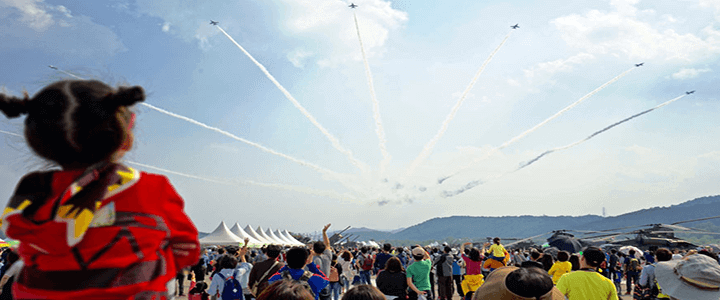President Trump is scheduled to travel to Asia next week, including a stop in the Republic of Korea. The White House has suggested that the president may even visit the Demilitarized Zone separating the two Koreas, although the Secret Service is understandably uneasy with that idea.
But true to form, the government of the Democratic People’s Republic is ramping-up the propaganda ahead of the visit.
return of atmospheric nuclear testing?
“The United States has great strength and patience,” Trump bluntly told the world’s leaders in his September address to the United Nations General Assembly, “but if it is forced to defend itself or its allies, we will have no choice but to totally destroy North Korea.” Naturally the DPRK did not take kindly to that threat.
The nation’s foreign minister, Ri Yong Ho, reacted by announcing that the DPRK was contemplating an atmospheric nuclear test over the Pacific Ocean. Above-ground testing of nuclear weapons has been forbidden since a 1963 treaty between the U.S. and the Soviet Union. The last atmospheric test of a nuclear weapon was in China in 1980.
Since the North has been largely quiet for the month and a half since then, the threat has fallen off the front page. Until yesterday. A spokesman for the government, Ri Yong Pil, told CNN the threat was not idle.
“The foreign minister is very well aware of the intentions of our supreme leader,” Ri said, “so I think you should take his words literally.”
what would this mean?
With each successive nuclear test, the world’s patience with Kim Jong-un’s antics has grown thinner. Each time the DPRK detonates a weapon, sanctions get tighter. So following through on this threat would not make sense.
Kim’s ultimate goal is to preserve his nation’s sovereignty, and by extension, his own power. He may appear rash, but when one examines his actions through that lens, they are quite rational. By ensuring that he retains the capability to make any preemptive strike and exercise in mass casualties, he is able to maintain the fragile yet stable status quo.
Kim and his generals know that if they were to launch any type of military action against their neighbors south of the 38th parallel, it would mean the ultimate destruction of their country. Trump has made that clear, after all, and there’s no reason to doubt his sincerity or his resolve.
But detonating a nuclear weapon above ground would be “a bridge too far” for the rest of the world, even North Korea’s supporters in China and Russia. Such a move would surely result in the complete isolation of the north, with all imports and exports cut off from the rest of the world.
In warfare, a siege is a technique where an attacker surrounds a fortified area (a castle or a walled city, for example) and prevents any movement in or out. The surrounded occupants, when they run out of food and fresh water, will ultimately have to surrender. It’s far easier than trying to storm the battlements.
The sanctions that would surely follow such a test are the modern equivalent of a siege. Kim knows he could not survive such measures. His latest bluster is nothing more than an attempt to keep the world guessing — and at arm’s length.




